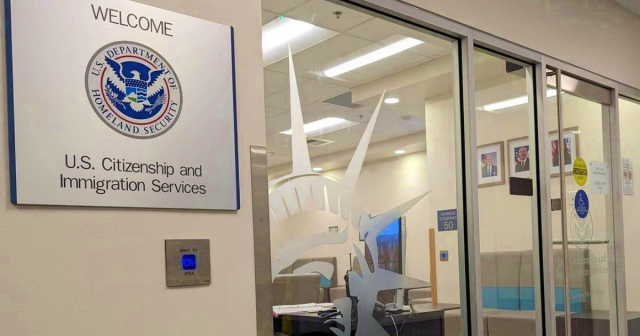A federal judge in Texas ordered a temporary halt on Monday to the Parole in Place (PIP) immigration program, which allows undocumented immigrant spouses of U.S. citizens who meet certain requirements to legalize and embark on a path to citizenship.
The decision was made by Texas District Judge J. Campbell Barker, who issued an administrative stay after 16 states, led by Republican attorneys general, filed a lawsuit on August 23, arguing that the policy would encourage illegal immigration.
Judge Barker noted that the claims made are serious and deserve a deeper analysis, which the court has not yet been able to conduct.
The pause occurred just one week after the Department of Homeland Security (DHS) began accepting applications on August 19.
The order will suspend the program for at least 15 days while the legal review of the case continues.
Lawyers representing the eligible families confirmed that several of them had already been notified about the receipt of their applications before the suspension.
Karen Tumlin, founder and director of the Justice Action Center, criticized the decision arguing that "Texas should not have the power to decide the fate of hundreds of thousands of American citizens and their immigrant spouses without facing reality."
President Joe Biden announced the Parole in Place program in June.
The PIP offers spouses of U.S. citizens who do not have legal status, but who meet certain requirements, a pathway to obtain citizenship by applying for a green card, allowing them to remain in the United States during the process.
Previously, obtaining residency for those who were in the country illegally after marrying a U.S. citizen was a complex and risky process, often involving returning to the country of origin without the certainty of being able to return to the U.S.
Who is eligible for Parole in Place?
To be eligible, applicants must have continuously resided in the United States for at least 10 years, not pose a safety risk, have no criminal records that disqualify them, and be married to a U.S. citizen prior to June 17 of this year.
Applicants must pay a fee of 580 dollars and complete a form (I-131F) that includes an explanation of why they deserve the parole, in addition to an extensive list of documents confirming that the applicant has been continuously in the country.
If the application is approved by the Department of Homeland Security (DHS), petitioners will have three years to obtain permanent residency, and during that period, they will be able to obtain work authorization.
The White House estimates that approximately 500,000 people could be eligible for this program, in addition to about 50,000 of their children.
Before this first temporary pause, the resolution of which is uncertain, another of the doubts and risks raised by the lawyers was whether this program will survive the upcoming presidential elections if Donald Trump is elected.
What do you think?
COMMENTFiled under:
